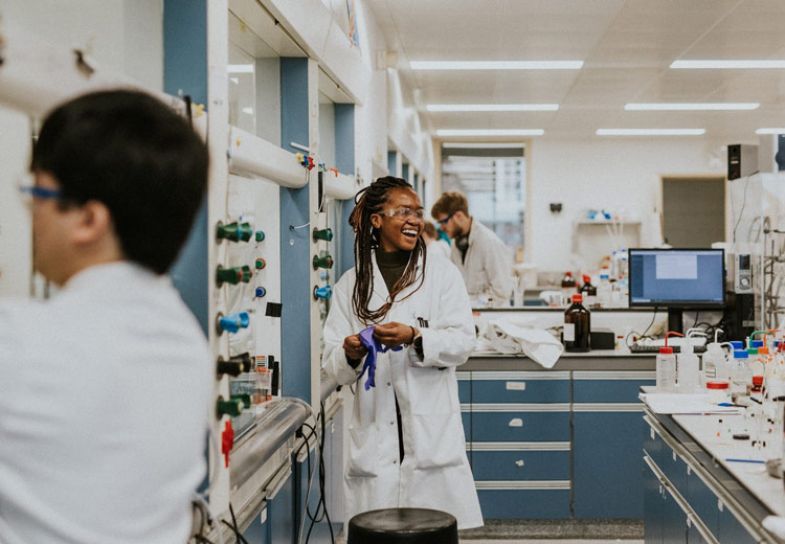The University of Bristol is celebrating nine Centres for Doctoral Training to nurture future leaders and pioneer research in science and engineering
The Centres for Doctoral Training (CDTs) offer postgraduate research opportunities in highly specialised and sought-after research areas in the UK and globally, such as artificial intelligence (AI), cybersecurity, quantum technology, sustainable energy and transport and infrastructure. CDTs take a collaborative approach to doctoral training by bringing together researchers, higher education institutions and industry partners to advance scientific knowledge and address complex issues, including reaching net zero and tackling modern health challenges.
“CDTs allow students to make better choices about the research they pursue,” says Ian Bond, pro vice-chancellor and executive dean for the Faculty of Science and Engineering at the University of Bristol. “There is a mandatory training element to them – so it provides an opportunity for students to learn before they start partaking in research,” says Bond. “The outcomes, on the whole, are better because they have the chance to reflect and think through a project before embarking upon it.”
CDTs offer research programmes where students undertake structured training alongside their research work. They provide a cohort-based model of doctoral training, which often involves groups of students working on different projects in related areas, promoting interdisciplinary collaboration among the next generation of researchers.

Ian Bond, pro vice-chancellor and executive dean for the Faculty of Science and Engineering at the University of Bristol
In March 2024, the University of Bristol secured £57 million in funding for its CDTs from UK Research and Innovation and its Engineering and Physical Sciences Research Council.
“The breadth of what they cover is a testament to the strength of activities that we have had at Bristol for some time,” says Bond. Two of these centres, specialising in cybersecurity and AI, will be located at the university’s new Temple Quarter Enterprise Campus, which is currently under construction.
Bond attributes the university’s ongoing success in establishing doctoral training centres to having clear goals and making sure support and training are implicit in the programmes. “We have a good set of principles on what you would expect to see in a successful CDT programme, regardless of the thematic area.”
Peer support and working in a collaborative environment help students to develop transferable skills and enhance their success, says Bond. The university places importance on providing students with opportunities to present their work to others and explore avenues for commercialising their research.
Strong links with business and industry partners are equally important. The university is prioritising these connections through its Bristol Innovations initiative, which is contributing to the value and diversity of the city as a global leader in innovation and helping translate ideas into products with new investment from industry and government.

A projected image of the University of Bristol's new Temple Quarter Enterprise Campus, which is currently under construction
As part of the training, students can learn about the ethical aspects of being a researcher and develop entrepreneurial skills to translate their discoveries into impactful applications. “This allows students to be better prepared for the non-academic world as well,” says Bond.
Students participating in CDT programmes get access to leading-edge facilities not only at the university but also through academic and industry partners in the UK and abroad. The emphasis on solving real-world problems attracts industry partners to collaborate with CDTs and offer support, says Bond. He observes that industry partners often gain an experienced employee at the end of the collaborative projects. “If a person who’s been doing [collaborative] research then transitions into the organisation and brings that knowledge with them, you see a direct benefit,” he says.
Bond notes that CDTs represent an innovative approach to training PhD students. In addition to driving innovation and scientific progress, they contribute to the UK economy by providing a significant number of highly skilled people to the workforce each year. “This approach for funding PhDs can have a real impact in so many areas,” says Bond.
Find out more about the Centres for Doctoral Training at the University of Bristol.

























